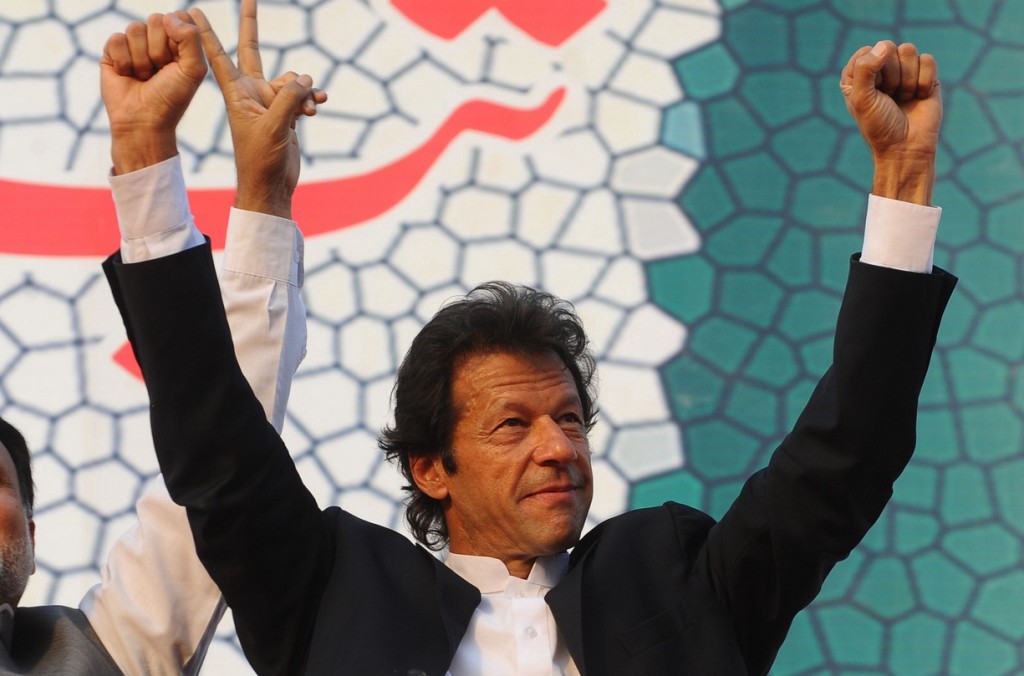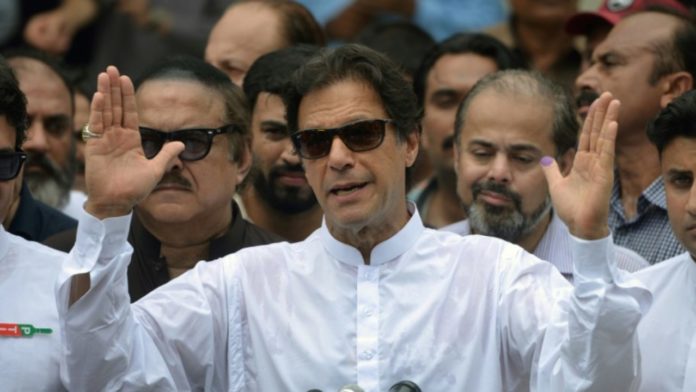Pakistan‘s third-ever democratic elected process leading to the transition of power took place on 25 July 2018. More than 100 political parties contested the 272 seats in the National Assembly (NA), the balance reserved seats being allocated on a proportionate basis with an outright majority would need to have 172 seats. A quick look at the unofficial results show that with nearly 115 NA seats Imran Khan’s PTI is capable of making the Federal and KPK govts, but will be hard put to make the govt in the Punjab, even with independents. As things stand today PML (N) can make a weak coalition govt in the Punjab. Will PML (N) risk this?
Almost fifty years ago Pakistan’s first general elections were held on Dec 7, 1970 on the basis of adult franchise in both the Eastern and Western wings under Gen Yahya Khan’s martial law. Broken up into three factions, the conservative Muslim League (ML) in West Pakistan campaigned on a nationalist platform, promising to initiate the reforms originally envisioned by the Quaid-e-Azam Muhammad Ali Jinnah in 1940s. Tested by political pundits and the intelligence agencies to win the elections they went down to miserable defeat. The Pakistan People’s Party (PPP), led by the charismatic Z.A. Bhutto whose popularity, socialistic ideas and his catchy slogan of “Roti, Kapra aur Makan” (food, clothing and shelter) were factors contributing to the popularity of the party. The forceful style of oration and the raw emotion Bhutto exuded served to instill hope and inspiration in millions. Raising religious slogans and the right wing Islamic parties led by Maulana Moudoodi campaigned on an Islamic platform, promising Sharia laws if voted into power but did not get much traction.
Bhutto’s dynamic leadership and charisma made him popular and influential in West Pakistan. His socialistic ideas and his slogan infused interest among the students, the poor, and the working class. Even then it was a huge surprise when Bhutto managed to get an outright majority in two Provinces and also a simple majority of the NA seats iin West Pakistan, winning 81 seats initially out of 138 seats reserved for West Pakistan in the National Assembly, with some independents joining the number rose to 88. The PPP won the Provincial Assembly polls in Punjab and Sindh. Jamiat-e-Ulema Islam (JUI) emerged victorious in Balochistan and the National Awami Party (NAP) in NWFP. A landed aristocrat himself, Z.A. Bhutto’s victory, was a paradox as the elected in his PPP included powerful landlords alongwith a number of socialists. The perception was that feudalism was no longer the dominant factor in Punjab politics and the “Biradari” of caste and tribal connections that controlled the vote/voters had broken down. However, Pakistan voters are still tied as serfs to their landowners and traditionally voted for their caste and Biradari.
Since no manipulation was done to rig results, the 1970 elections is generally regarded as the most free and fair in Pakistan’s history, however the outcome of the ballot (in both wings) was grossly miscalculated and for different reasons.
Despite the opposition’s claims to the contrary, the ECP must be given credit to ensure that elections are free, fair and unbiased and that the 2008 and 2013 manipulation or rigging/tampering is ruled out from the voting process. However the NADRA part has triggered a major controversy, as it is Chairman NADRA Dr. Mobin was accused previously of being a PML (N) stalwart. Was the delay technically engineered? The answer is important because knowing they were onto a major electoral defeat the major parties who lost out yelled “foul”. Reports were received of not being given copy of Form 45 certifying votes count, etc. in each constituency. The total demise of Mustafa Kamal’s PSP was really surprising given the pre-poll surveys. When the RTS failed, supposedly because of “stress”, it took time to bring the system back on line. This played into the hands of the opposition who had earlier warned about pre-polls manipulation. To ensure fairplay the ECP had requisitioned the presence of the Army in the Polling Stations, a quick and objective enquiry by a duly constituted JIT is necessary to ensure transparency and accountability about this controversy.

The mercurial rise in popularity of Imran Khan, leader of PTI from 1996 to 2018, particularly in the few months leading to Election Day has come, as a huge surprise to many, particularly the PML (N) and the PPP, 1970 Bhutto like. The mood of the electorate has undergone a drastic change just like it happened in 1970 when even the agencies had almost entirely rubbished the idea of PPP ever sweeping the polls in West Pakistan. Other political parties considered to be strong such as the PML factions were also taken by surprise on having to lose ground with the masses. Today when people have become that much more much aware of their rights and civil liberties as well to the injustice being meted out to them by those in power, corruption has become a major issue among the masses. Corruption within PML (N) by its top leaders and family members is another factor that has led to a sharp decline in popularity of this once hugely popular political party.
With an early unofficial indication of the likely results coming in, those expecting to lose electoral support, they have launched a propaganda campaign to accuse the Army of interference. The PML (N) and PPP are both crying foul alleging that the playing field was not level for them. Very much like 1970, the military today has resisted direct intervention, allowing democracy to make its own path. Despite the virulent attacks by Nawaz Sharif and his party men the Army has kept its cool and should keep doing so. A section of the electronic media, duly orchestrated by pets of many has joined in tarnishing the Army’s image. To influence the voters’ choice of their preference as rulers for next five years, a constant drumbeat of lies was disseminated, mainly through paid agents in the electronic media. With certain international entities bent on making Pakistan weak and pliant, anti-military narratives are proliferating.
Much to the chagrin of our political pundits and despite the vast sums of money used, the party is over, Election Day has delivered the verdict of the people that Pakistan will not be looted anymore. Our sore losers would like to make the whole process illegitimate but one cannot ignore the facts of change. Affecting this is truly a defining moment in the history of Pakistan.




